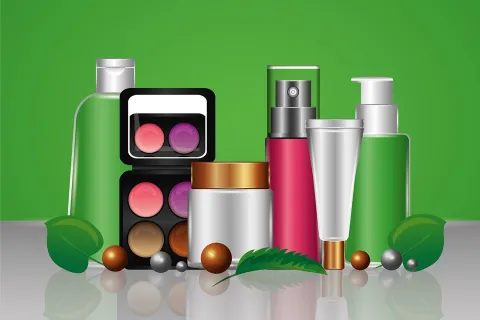
In Vietnam, the cosmetics industry is growing rapidly, making it essential for businesses to maintain high standards of quality and safety. Adhering to Good Manufacturing Practices (GMP) is crucial for ensuring that cosmetic products are safe, effective, and meet regulatory requirements. In this blog, we’ll explore compliance tips and best practices for maintaining GMP standards in Vietnam's cosmetic industry.
Understanding GMP in Vietnam’s Cosmetic Industry
The Vietnamese cosmetic sector is regulated by the Ministry of Health (MOH) under the provisions of the ASEAN Cosmetic Directive (ACD). The ACD ensures a harmonized regulatory framework across ASEAN countries, including Vietnam, and mandates compliance with the ASEAN GMP Guidelines for Cosmetic Products.
Key Aspects of GMP for Cosmetic Manufacturers in Vietnam
Adhering to GMP involves implementing systematic processes that cover all stages of production, from sourcing raw materials to the final packaging. Here are the core elements of GMP in Vietnam:
Quality Management System (QMS): Establishing a QMS is fundamental for ensuring consistent quality. This involves setting up documented procedures for all processes, from raw material handling to finished product storage.
Premises and Equipment: The manufacturing facility should be designed to prevent contamination and ensure smooth workflow. Equipment must be regularly calibrated, maintained, and cleaned according to established protocols.
Personnel Training: Staff should be adequately trained on GMP requirements, hygiene practices, and safety protocols. Regular training updates are necessary to maintain awareness of regulatory changes.
Production Processes: Implement standard operating procedures (SOPs) for all production activities, ensuring consistency and minimizing errors. Monitor production processes closely to identify deviations from established standards.
Documentation and Record Keeping: Accurate documentation is critical for demonstrating GMP compliance. Maintain comprehensive records of production, quality control, equipment maintenance, and employee training.
Quality Control (QC): Establish a robust QC system to test raw materials, in-process samples, and finished products. This ensures that the products meet safety and quality standards before reaching consumers.
Compliance Tips for Cosmetic Businesses in Vietnam
Understand the Regulatory Framework: Familiarize yourself with the Vietnamese Law on Cosmetics and the ASEAN Cosmetic Directive. This will help you understand the legal requirements and ensure that your business operations are compliant.
Implement a Self-Inspection Program: Regular self-inspections are a proactive way to identify GMP non-compliance issues. Address any shortcomings promptly to avoid regulatory penalties.
Source Quality Ingredients: Ensure that all raw materials comply with safety and quality standards. Use reliable suppliers with GMP certification and conduct regular audits to verify compliance.
Monitor Product Stability: Conduct stability testing on cosmetic products to ensure they maintain quality and efficacy over time. This is a critical step in preventing product recalls due to degradation or contamination.
Ensure Proper Labeling: Label all products according to Vietnam's cosmetic labeling regulations. Labels should include the product name, usage instructions, ingredient list, manufacturing/expiry dates, and batch number.
Prepare for Regulatory Inspections: The MOH conducts routine inspections to verify GMP compliance. Maintain a state of readiness by ensuring all documentation, processes, and facilities are always up to standard.
Best Practices for Upholding GMP Standards
Create a GMP Manual: Develop a comprehensive GMP manual that outlines all procedures, responsibilities, and compliance requirements. This serves as a reference for employees and ensures consistency in operations.
Invest in Staff Training: Regular training is crucial for building a culture of GMP compliance. Conduct workshops and refresher courses to keep employees updated on the latest GMP regulations and practices.
Conduct Internal Audits: Regular internal audits help identify areas for improvement and ensure continuous compliance. Address audit findings promptly to maintain high-quality standards.
Maintain Cleanliness and Hygiene: Implement strict hygiene protocols for personnel, equipment, and facilities. This minimizes the risk of contamination and ensures product safety.
Engage with Regulatory Experts: Consult regulatory experts who specialize in GMP compliance for the cosmetic industry. They can provide guidance on navigating Vietnam’s regulatory landscape and ensuring compliance.
Conclusion
Adhering to Good Manufacturing Practices (GMP) is not only a regulatory requirement but also a commitment to delivering safe and high-quality cosmetic products to consumers. By following compliance tips, investing in staff training, and implementing best practices, cosmetic businesses in Vietnam can maintain GMP standards, ensuring product safety, quality, and market success. Partnering with a regulatory expert like Freyr can help you achieve regulatory compliance.









